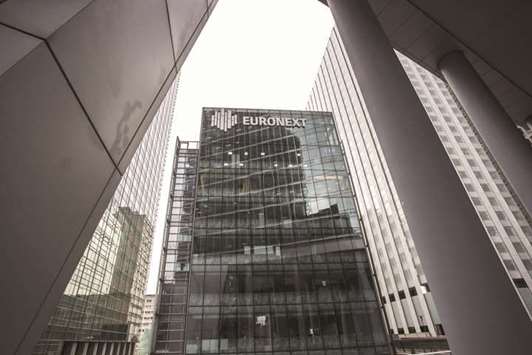Europe’s major stock markets were flat to firmer yesterday, with the US markets shut for Thanksgiving.
“Equities are positive, but typically quiet,” in view of the US holiday, said Accendo Markets analyst, Mike van Dulken.
While London and Frankfurt were both more or less flat at the end of the session, Paris made much stronger gains, buoyed by the release of favourable economic indicators for both France and the wider eurozone, traders said.
Business rose sharply across the eurozone in November, a key survey showed, as job creation hit the fastest pace in 17 years and the economic recovery in Europe gained steam.
Analysts said the rise in the headline readings of the survey by data monitoring company IHS Markit was a confirmation that the eurozone economy was resilient against the shock of Brexit and would mean a banner year for economic growth.
In France, in particular, private sector activity rose its highest level in six and a half years.
IG analyst Chris Beauchamp noted that European markets had “had a little wobble” at the start of the session, following a downbeat session in Asia.
“The drying up of (trading) volumes over the past 24 hours prompted mini-routs in the FTSE and the DAX, but these seem to have run their course with both indices moving off their lows.”
German investor sentiment was subdued by ongoing political uncertainty following last weekend’s inconclusive elections.
London was burnt by domestic energy supplier Centrica issuing a gloomy profits warning that sent its share price diving almost 18% to 134.30 pence. London’s FTSE 100 closed flat at 7,417.24 points and Frankfurt’s DAX 30 shed 0.05% at 13,008.55 points, while Paris’ CAC 40 gained 0.5% at 5,379.54 points and the EURO STOXX 50 closed 0.3% up at 3,572.07 points.
Earlier, in Asia, equities were mostly deflated, with Tokyo also shut for a public holiday.
The dollar struggled following the previous day’s losses as dovish Federal Reserve minutes rowed back expectations for US interest rate hikes.
While board members at the US central bank will likely lift borrowing costs next month, official records of their October meeting indicate some are increasingly concerned about persistently low inflation as well as high equity prices.
The release of the minutes came after data showing a surprise drop in key durable goods orders, fuelling a sell-off in the greenback across the board.
Expectations that rates would be lifted several times next year — partly through an improving economy and flagged tax cuts — helped drive the dollar up over the past year.

The Euronext logo is seen on the exterior of the Paris Stock Exchange. The CAC 40 gained 0.5% at 5,379.54 points yesterday.
